Distilling 101
Can You Distill Beer? (Distiller Explains!)
I’ve been asked many times whether it’s possible to distill beer. Whether it’s a batch of homebrew gone wrong, or a keg left over from.. *well*.. doesn’t matter.. It seems a shame to waste good beer.
After all, whiskey is just distilled beer? Right??
So can you distill beer and make your own whiskey or vodka at home?
Yes, it is possible to distill beer however it will have a very different flavor to traditional whiskey. Distilling commercial beer results in a product called “bierschnapps” which has a malty flavor with a hint of hops. Alternativly. beer can be distilled with a reflux still to yield a high-proof vodka (although its hard to get the hop twang out).
It is important to note that distilling beer without a license is illegal in many countries, including the United States. If you’re interested in trying your hand at distilling beer, be sure to do your research and follow all applicable laws and regulations.
In this blog post, we’ll go over the basics of beer composition, the distillation process, what happens when you distill beer, and much more.
Table of Contents
Beer Basics and Composition
Beer is an alcoholic beverage that is made by fermenting grains, usually barley and wheat. During the brewing process, the grains are mixed with water and yeast, and then heated to extract the sugars from the grains. This mixture is then allowed to ferment, which produces alcohol and carbon dioxide.
The composition of beer can vary depending on the type and brand. However, most beers contain around 4-6% alcohol by volume (ABV). The alcohol content of beer is determined by the amount of sugar that is present in the mixture before it is fermented.
The Distillation Process
Distillation is the process of separating the different components of a liquid mixture by boiling and condensing the mixture. During the distillation process, the liquid mixture is heated until it reaches its boiling point. The steam that is produced is then collected and condensed back into a liquid, and the different components of the mixture are separated based on their boiling points.
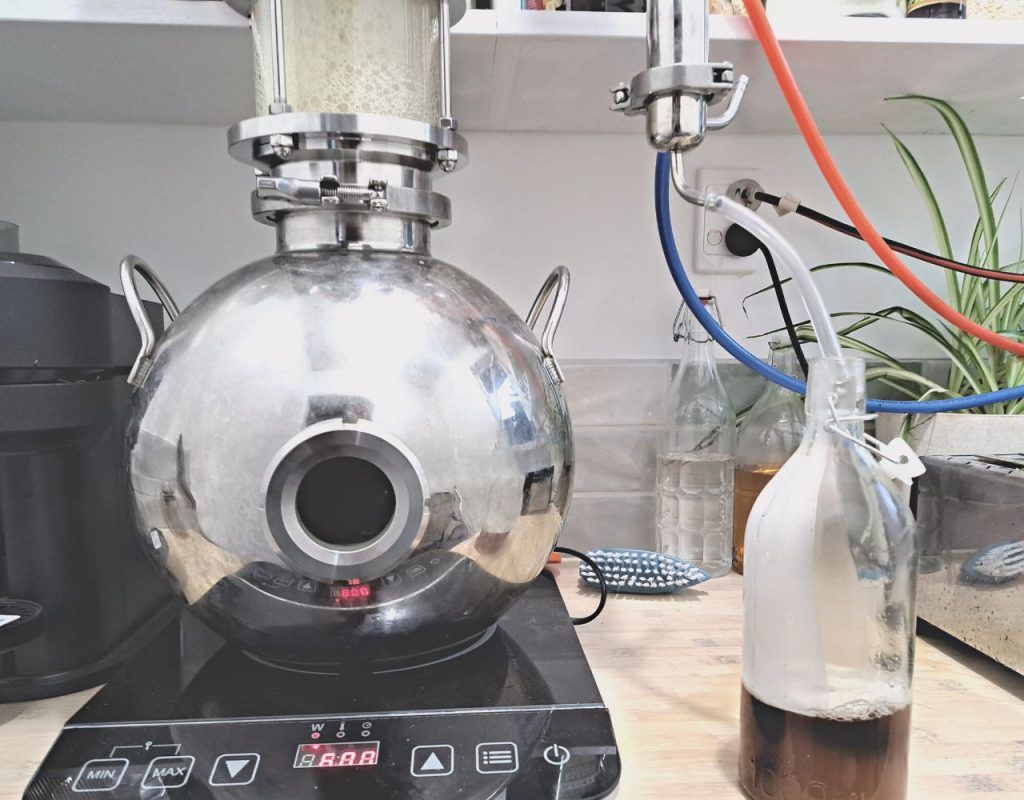
What Happens When You Distill Beer?
When you distill beer, you are essentially removing the water and other impurities from the mixture, leaving behind a concentrated form of alcohol. The resulting liquid is similar to whiskey, but with a different flavor profile.
Is It Legal To Distill Beer?
In the United States, it is illegal to distill beer without a license. However, in some countries, such as Germany, it is legal to distill beer for personal use.
Learn More: In this article, we get into the weeds on where you can and cant distill and WHY.
| Country | Legal to Distill? | Notes |
|---|---|---|
| United States | No | Distilling requires a license |
| Canada | No | Distilling requires a license |
| United Kingdom | No | Distilling requires a license |
| France | No | Distilling requires a license |
| Scotland | No | Distilling requires a license |
| South Africa | No | Distilling requires a license |
| Serbia | Pretty Much | Legal to distill for personal use |
| Australia | Small Quan | Less than 5L is legal |
| New Zealand | Yes | Legal to distill for personal use |
Note: Laws and regulations may vary within each country and may change over time. Please check local laws and regulations before distilling beer.
What Does Distilled Beer Taste Like?
Distilled beer, also referred to as “beerschnapps”, is a type of spirit that is made from beer through a process called distillation. This process involves heating the beer to a temperature that causes the alcohol to vaporize, then collecting and condensing the vapor to create a more concentrated alcoholic drink. The resulting liquid has a distinct flavor profile that is different from that of whiskey. While whiskey is made from fermented grain mash, distilled beer is made from actual beer, giving it a unique malty flavor with a hint of hops. Moreover, the texture of beerschnapps is thicker and more viscous than whiskey, which gives it a different mouthfeel. Due to its production process, beerschnapps has a slightly sweet aftertaste that is distinct from that of other spirits.
While a select few people enjoy the flavor of distilled beer or unaged whiskey, many don’t like the taste!
People who have tried it say they can taste a hint of the original beer and still smell the slight aroma of beer. They also say it has a flat or “vegetable stock” flavor that is not usually pleasant.
Distilled hopped beer has a grainy and bitter taste and keeps the aroma of hops.
Commercial brewer owners and home brew distilling experts say beer can taste like whiskey with a hint of grainy sweetness that isn’t present in this high-proof alcohol.
Can You Distill Beer Into Whiskey?
Technically, you can distill beer into whiskey. While the process may be the same in terms of distillation, the resulting whiskey will have unique characteristics due to the different composition of the beer used. For example, the type of hops and yeast used in the beer will impact the flavor and aroma of the resulting whiskey. Additionally, the distillation process itself can also have an effect on the final product, making it smoother or harsher. Therefore, while it is possible to create whiskey from beer, it is important to remember that the resulting product will have a distinct flavor profile that may not be to everyone’s liking.
What Is Beerschnapps?
Beerschnapps is a type of distilled beer that is very popular in Germany and has been a part of German brewing tradition for centuries. It is made by carefully distilling beer and then aging it in oak barrels, which gives it a unique, complex flavor profile .
The process of distillation helps to concentrate the flavors of the beer, resulting in a spirit that has a strong, malty taste with a hint of hops, making it a great alternative for those who enjoy the taste of beer but prefer a more complex and refined drinking experience.
Beerschnapps can be enjoyed on its own or mixed with other spirits or mixers to create a wide range of cocktails and drinks, making it a versatile and exciting addition to any bar or liquor collection.
Watch: This youtube video explains what bierschnapps is in more detail and what it tastes like
What’s The Best Beer for Distilling?
The best beer for distilling is one that has a high alcohol content and a strong flavor profile. Dark beers, such as stouts and porters, are often used for distillation due to their rich, malty flavor.
A few more factors to consider are;
- Price: distilling perfectly good beer is a waste of – well – perfectly good beer. I’d only consider distilling beer that’s gone bad, or is for some other reason undrinkable.
- Quantity: You’re going to need A LOT of beer to get a meaningful amount of distilled Beirschnapps out the other end. As a rule of thumb, you’ll need 10-12L (3gal) of beer to make a 1L bottle of distilled Beirschnapps.
How Do You Distill Beer? – Step by Step
Expert brewers around the globe use similar processes for brewing and distilling the world’s third favorite beverage. Some alcohol brewers use ready-made kits for brewing and distilling beer. Others assemble their own stills, made to suit the shape and size of their fermented mash.
Commercial and home brewers in the United States and Western European countries like Germany start the beer distillation process using the ingredients below.
Beer Ingredients
- Water
- Yeast
- Malted Barley
- Hops
After assembling the ingredients, the next steps in the beer distillation process are as follows.
Step #1. Assemble Ingredients – Expert brewers say sourcing and preparing ingredients should take just a few hours.
Step #2. Fermentation – This processtakes a minimum of two weeks or longer based on your brew formula, temperature, and yeast composition.
Step #3. Bottling – Transferring your brew into bottles for conditioning gets brewers one step closer to drinking their distilled beer.
Step #4. Conditioning – Once the fermentation process is complete, your brew will go through bottle conditioning for at least two weeks before it’s ready to drink.
In most cases, the beer distillation process follows these procedures and takes under eight weeks to complete.
The distillation process can take longer when brewers don’t have the right ingredients or add more to create an experimental brewed concoction.
Frequently Asked Questions
Q. How long does it take to distill beer?
The time it takes to distill beer may vary depending on several factors, including the alcohol content of the beer, the size of the still, the type of still being used, and the desired end result. While some batches of beer may take only 4-6 hours to distill, others may require longer periods of time to achieve the desired outcome.
Q. Will distilling beer damage my still?
Distilling beer can be a rigorous process for your still, as it can leave behind residue that may clog the still and potentially cause damage over time. To ensure the longevity of your still, it is important to clean it thoroughly after each use, using specialized cleaning products that are safe for use on stills.
Q. Can you extract alcohol from beer?
Yes, it is possible to extract alcohol from beer using distillation. By heating the beer in a still, the alcohol evaporates and can be collected and condensed into a stronger, more concentrated form.
Q. Can you make vodka from beer?
Although vodka is typically made from grains like wheat or rye, beer can be used as a base for making vodka. By distilling the beer multiple times and filtering it through activated carbon, the alcohol can be purified and the final product can resemble vodka in both taste and texture.
Final Thoughts
Distilling beer is a unique and interesting process that can result in a delicious and flavorful product.
Since beer contains hops, you won’t be able to create a whiksey from beer, but you can make a famous german drink called Bierschnapps.
You can also consider reflux distillion to create a vodka, but there are probably better ways to make vodka.
However, it’s important to remember that distilling beer without a license is illegal in many countries, including the United States. If you’re interested in trying your hand at distilling beer, be sure to do your research and follow all applicable laws and regulations.

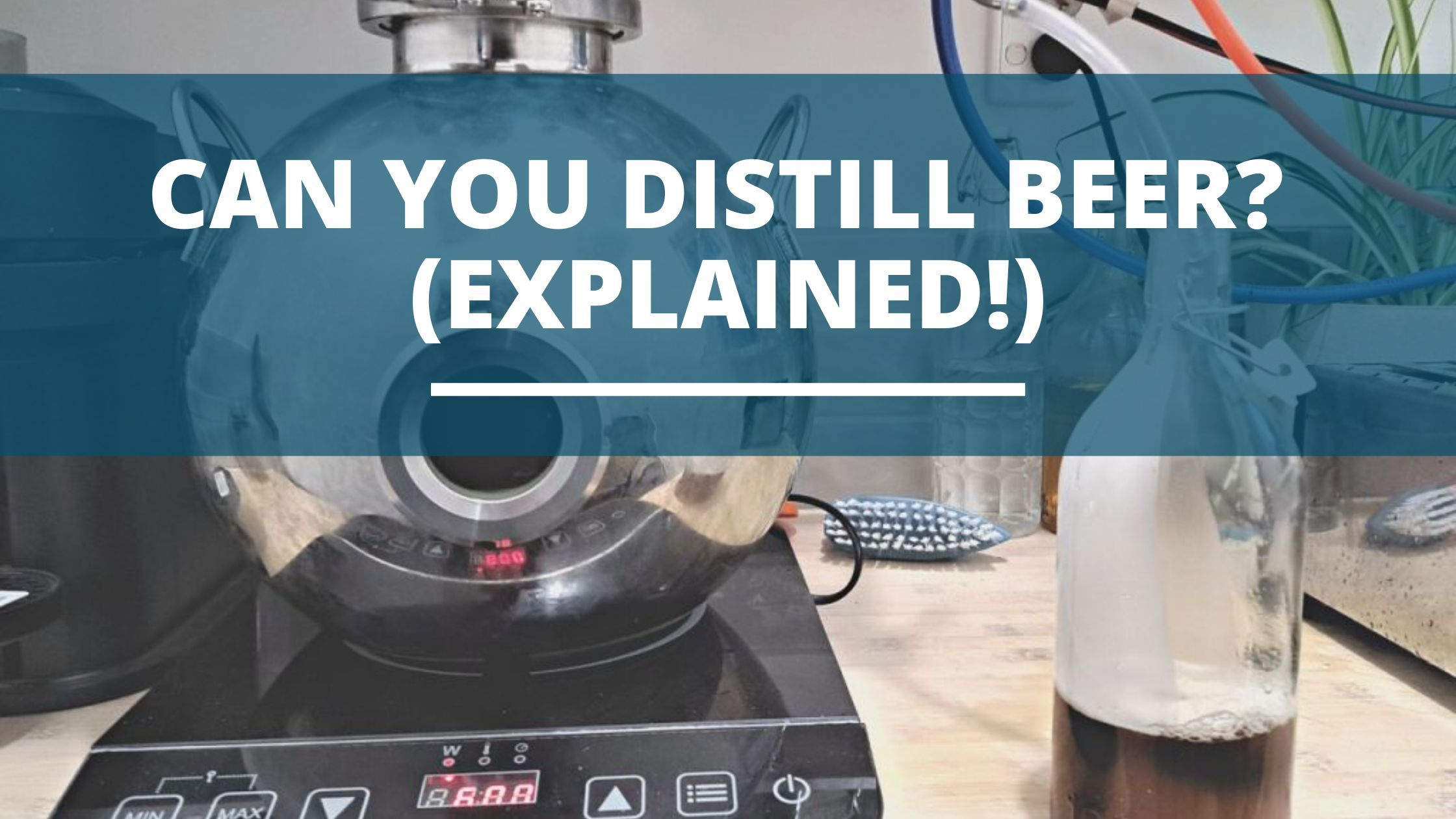


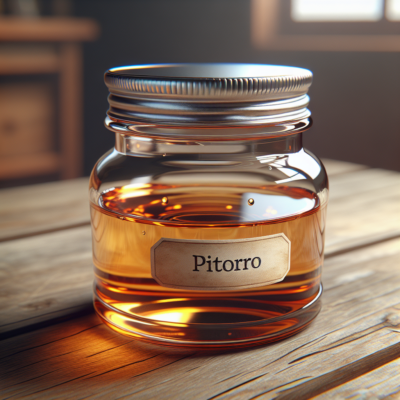


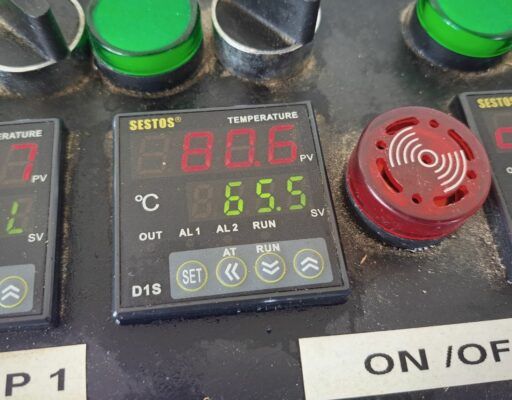
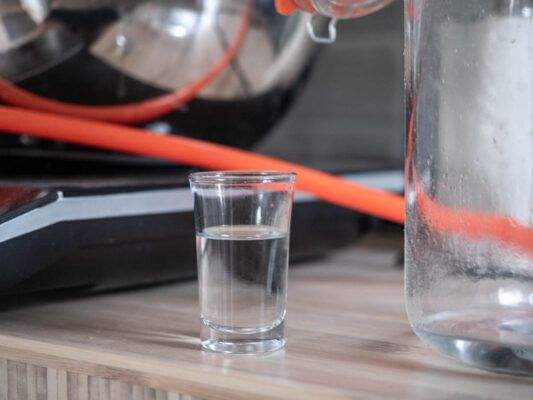
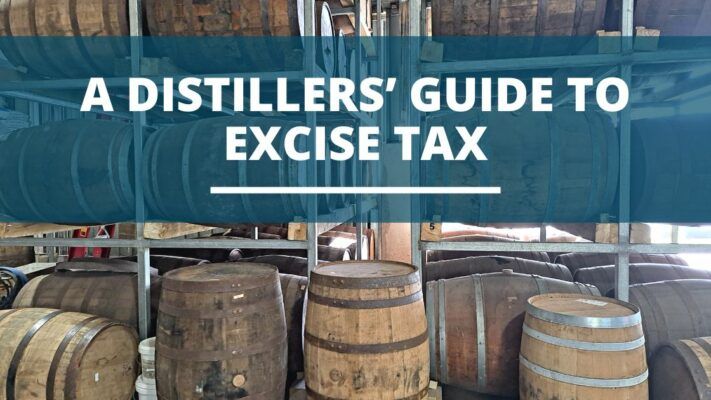
In Belgium, one Geuze maker and restaurant, 3 Fonteinen (3 Fountains) in Beersel got all his stock spoiled because of a failure in the T° management of his storage. He avoided bankruptcy by distilling all the beer he could recover…
“On Saturday morning, the 16th of May, 2009, Armand opens the door of the storage room. A heatwave literally blows him backwards. Fearing the worst, he storms into the warm room. This space, which was full of fermenting and conditioning bottles, normally stayed at a constant temperature of 18°C (64°F), kept in check by a thermostat. Due to a malfunction, though, temperatures had now risen to 60°C (140°F). At that moment, 13.000 bottles had already exploded from the rising pressure. The hall had turned into a war zone where Armand could still hear one bottle explode after the other.”
“At the time, Armand was taking a course in distillery techniques and his teacher went along with a wacky idea: to distill the geuze. After a few tests, the experiment actually seemed to work. The beer had oxidized, but the aroma was still nicely in place and it delivered a tasty distillate. Two weekends after the disaster, a hundred or so volunteers helped to empty 65.000 bottles of geuze to serve as the basis for Armand’Spirit, a fine eau de vie with geuze character, distilled by the Distillerie de Biercée.”